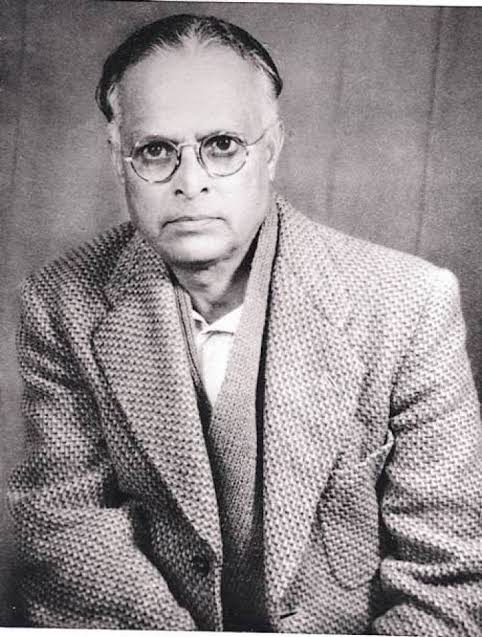Toasted English SummaryAn essay by R.K. Narayan called "Toasted English" is well recognised. He is regarded as one of the top English-language Indian novelists. In addition to short stories, he has written over ten books. Numerous Indian and European languages have been used to translate his works. An essay by R.K. Narayan called "Toasted English" is well recognised. He is regarded as one of the top English-language Indian novelists. In addition to short stories, he has written over ten books. Numerous Indian and European languages have been used to translate his works. About the Author
R.K. Narayan, also known as Rasipuram Krishnaswami Iyer Narayanaswami, was an Indian author best known for his novels set in the made-up South Indian town of Malgudi. He was born on October 10, 1906, and died on May 13, 2001. Along with Mulk Raj Anand and Raja Rao, he was a notable author of early Indian literature in English. Over the course of a career spanning more than 60 years, Narayan was honored with a number of prizes and honors, including the AC Benson Medal from the Royal Society of Literature, the Padma Vibhushan, and the Padma Bhushan, India's second and third highest civilian awards, as well as the Sahitya Akademi Fellowship in 1994, the top award given by the country's national academy of letters. Additionally, he received a nomination for the Rajya Sabha, India's highest chamber of parliament. Additionally, honorary doctorates were awarded by the Universities of Mysore, Delhi, and Leeds in 1967, 1973, and 1974, respectively. As a result of his contributions to Indian literature, Narayan received a nomination towards the conclusion of his career to the upper house of the Indian Parliament for a six-year term beginning in 1989. He received the Padma Vibhushan, India's second-highest civilian accolade, in 2000, a year before his passing. Through his writing, Narayan was most successful in opening up India to the outside world. Summary of the EssayThe straightforward language and realism of Narayan's characters are well-known. The essay "Toasted English" explores how the English language varies from one country to another in a comical yet serious way. The essay illustrates the differences between American and British English in a humorous manner. Similar to how Indians pushed the British out of their land, the author claims that Americans did the same but instead adopted English. The passive voice was not employed by Americans who used English in an informal manner. Additionally, they abandoned formalism and substituted more practical terms for others. "Toasting" is the name given to this process of changing English. In place of "Trespassing Prohibited," the notice board can instead read "Newly Planted, Don't Walk." Being able to have many meanings made the new words incredibly useful. More often used words are "Ok," "Yeah," and "Yes." Narayan uses the word "check" as an example, which is a word that might be considered a national expression in the United States. American usage of the word is more widespread than British usage, which uses it only in the definitions. I'll investigate, inspect, and verify when I say I'll check. A "check girl" is someone who takes care of your coat, umbrella or anything else you have. "Your check" refers to your ticket or token. R.K. Narayan goes on to talk about how English has become something of a commodity. Londoners employ it politely. On a London bus, the conductor will never say, "Ticket, Ticket," but will instead approach the passenger and say, "Thank you," taking the fare and giving out the ticket at the same time. It is unnecessary to follow the word yes with "Yes Sir" or "Yes Darling." Yes and okay are complete sentences that don't require any additional suffixes to indicate special deference. Without any fuss, "Yeah" completes the phrase and signals the start of a new exchange. A short base of the tongue is used to say "yeah." The moment, in R.K. Narayan's opinion, has come for English to be spoken openly in the streets and become the common man's language. It should adjust to fit Indian requirements and circumstances, just like Americans do. The mingling of English is something he opposes. It should have used the same grammatical conventions. India needs to create a Bharat brand of English, similar to "Toasted English." Before saying, there shouldn't be any thought required. The author advocates for giving Indian English its own distinctive stamp, or "Swadeshi Stamp". It must be distinct from current English and have its own personality. ConclusionThe formality surrounding the use of the English language has been lost as a result of the 'toasting' of English in America. The phrase "the American National Expression" is used by the author to explain how Americans have developed distinct keywords that can be used wherever in the world. He explains this because words like "check," "anywhere," and "anyhow" can be misused while still being accepted in the context. According to the author, Americans have adapted English to suit their preferences and way of life by making it more straightforward, conversational, and informal. It became easier for them to express themselves since they were freed from the oppressive tyranny of the passive voice when using the English language. The author, on the other hand, is not in favor of it because it fails to respect the integrity of grammar and the rule of law. The author likes American English because it leaves no room for speculation and does not need to spend a lot of time peering out and studying the signboard. An example of this is when a signboard is used to convey clear instructions, such as when it says, "Absolutely Little Parking." |
 For Videos Join Our Youtube Channel: Join Now
For Videos Join Our Youtube Channel: Join Now
Feedback
- Send your Feedback to [email protected]
Help Others, Please Share









